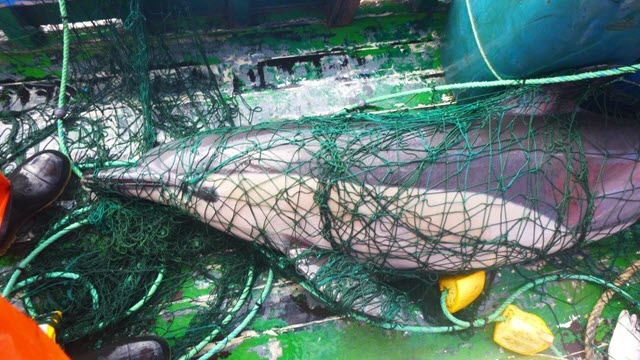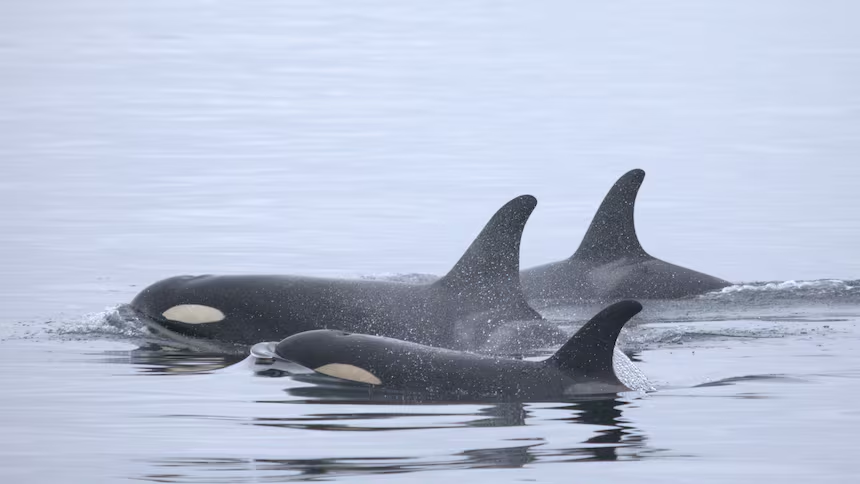 Incidental capture in fishing operations is the biggest threat to whales, dolphins and porpoises globally but new research shows placing LED lights on gillnets reduces the chances of dolphins and other marine species being caught in the deadly gear.
Incidental capture in fishing operations is the biggest threat to whales, dolphins and porpoises globally but new research shows placing LED lights on gillnets reduces the chances of dolphins and other marine species being caught in the deadly gear.
Between 2015 – 2018, researchers worked with small-scale vessels from three Peruvian ports placing 1,728 gillnets in the ocean – 864 with LED lights at a 10m interval along the float lines and a further 864 with no LED lights. Researchers compared the catch and bycatch rates for both types of nets and it was found that the floating gillnets with lights along the top of the float lines cut accidental “bycatch” of small cetaceans by more than 66%. Designed to catch fish by their gills (hence the name), gillnetting is a very common technique used in the small-scale fishing industry. These nets can be either anchored or move with the ocean currents and often have high bycatch rates of threatened marine species such as whales and dolphins.
This relatively low-cost technique could help cut unnecessary cetacean deaths and allow fisheries to fish more sustainably. During the study, it was found that small cetacean species killed included long-beaked common dolphins, dusky dolphins and Burmeister’s porpoises. We hope that now the results of this study have been published, that many fisheries with bycatch problems will address the issue as a matter of urgency and will choose to illuminate their fishing nets to reduce the number of cetaceans getting caught and killed as, without immediate action, several species and many populations can be lost in the next few years.
The study was conducted by the University of Exeter and Peruvian organisation ProDelphinus. Their paper, published in the journal Biological Conservation, is entitled: “An illuminating idea to reduce bycatch in the Peruvian small-scale gillnet fishery”.




